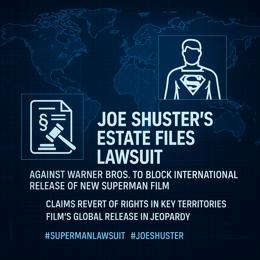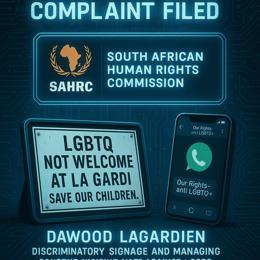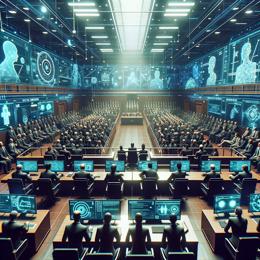Image created by AI
The Fading Luster of the Zondo Commission and Its Struggle for Legal Traction
Amidst high hopes for a tide-turning investigation into state capture, the Zondo Commission, once South Africa's beacon of anti-corruption has seen its brilliant commencement dwindle into a sputter of legal stagnancy. The complex landscape of legal proceedings and inquiries entails a nuanced understanding of their roles, limitations, and the subsequent challenges which face prosecutions based on their findings.
Max Rainer from SchoemanLaw elucidates the divergences between a commission of inquiry and judicial court procedures. The inquisitorial rather than adversarial nature, a lower threshold for evidence admissibility, and non-binding recommendations mark the fundamental disparities between such commissions and the courts that yield regulatory power.
Former Minister of Transport Fikile Mbalula’s inflammatory critique, regardless of its execution, shed light on an underlying skepticism about the efficacy of the Zondo Commission itself. It prompts the question of accountability, and to what extent the findings of the Commission catalyze actual change or justice.
The Commission's lack of prosecutorial power is glaring when juxtaposed with the drama surrounding figures such as Matshela Koko, the former Group Chief Executive, whose confrontation with the findings publicly challenged the substance of the Commission's authority and allegations. This dramatically culminated in a R2.8 billion fraud and corruption case against Koko and others being struck off, spotlighting major hurdles the NPA faces in translating inquiry revelations into courtroom victories.
Gwede Mantashe and Duduzane Zuma's separate decisions to seek judicial review of the Zondo Commission’s assertions further underscore the chasm between accusation and conviction. These scenarios project a bleak image of the cracks in South Africa's fight against corruption that commissions alone seem unable to mend.
Moreover, the Commission's alleged selective attention to evidence and testimonies speaks volumes about perceived biases and potential misuse of such inquiries as tools for political manipulation rather than transparent justice. It draws parallels to the apartheid government's utilization of commissions for diversive tactics, carrying an ominous echo into the present day.
The differing perceptions of figures such as Pravin Gordhan amongst various commissions and media, versus the reality of judicial scrutiny, illustrate the potential pitfalls of premature conclusions about integrity and culpability.
It's a sobering moment for South Africa, as the anticipation surrounding the Zondo Commission's ability to act against state capture faces the stringent demands of the judicial system. The advice from regional magistrate Stanley Jacobs highlights an essential judicial philosophy: the readiness for trial should precede enrollment in higher courts, emphasizing thoroughness over haste in legal proceedings.
The Zondo Commission's narrative thus shifts from a once glittering emblem of the pursuit of justice to a cautionary tale of the complexities and nuances involved in the fight against systemic corruption. The lessons learned from these experiences will be essential as South Africa continues to navigate the choppy waters of legal reform and true accountability.










